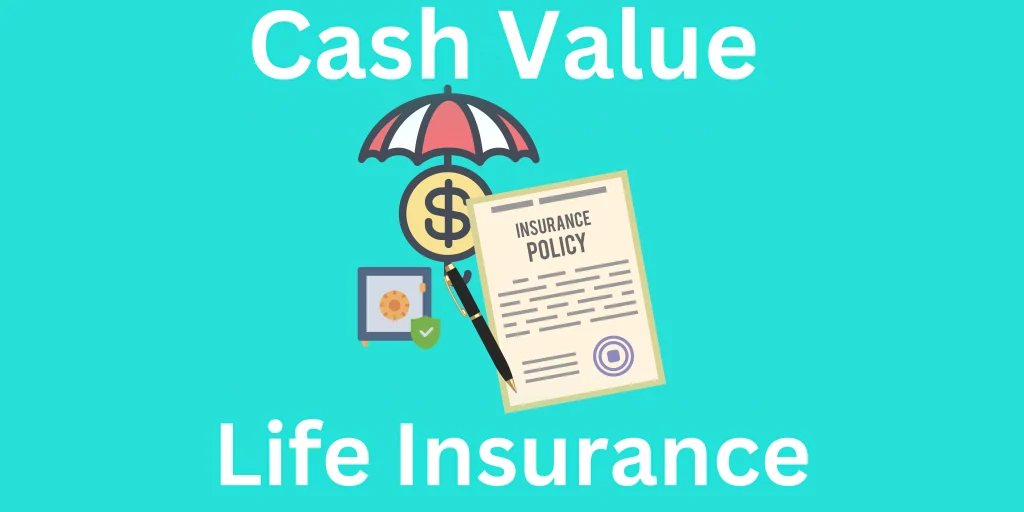If you’re looking for a permanent life insurance policy that generates immediate cash value, you might be considering options that can quickly boost your financial flexibility.
Such policies not only provide the peace of mind that comes with a death benefit but also offer an immediate cash value portion.
In this article, we will discuss which type of life insurance policy generates immediate cash value, learn your options, how they work, and their potential to enhance your financial planning.
Key Takeaways
Cash value life insurance is a unique feature of permanent life insurance policies such as whole life providing a savings component that grows over time and can be accessed by policyholders for financial needs during their lifetime.
Whole-life policies gradually increase cash value with each premium paid.
Life insurance policies with immediate cash value offer financial security, and the ability to access funds through loans or withdrawals.
Contribute towards financial goals like retirement, emergency funds, or education costs.
Which Type of Life Insurance Policy Generates Immediate Cash Value

Cash value in life insurance differentiates it from other types of insurance. Acting as a bank account on steroids, a portion of the premiums paid is set aside and invested by the insurance company.
It’s like having a small growing treasure chest within your life insurance policy, which can be accessed for various life events. So, it’s not only a death benefit but also a growing source of funds that can provide financial support when you need it the most or use it for different investment opportunities.
Most whole life insurance policies offer cash value that accumulates over time and can be tapped into as a loan or withdrawal. The cash value feature is a hallmark of permanent life insurance policies. This cash value allows policyholders to accumulate funds over time.
Its presence alone is not enough; understanding how it works and grows is key to leveraging it effectively. This is also not an investment, but an insurance policy for risk protection. Do not expect this design to take care of all your financial needs.
Definition of Cash Value
So, what exactly is cash value? In simple terms, it’s a savings account on steroids for a life insurance policy that grows over time, acting as a living benefit for policyholders. A part of your premium payments goes into this account, and it gradually grows over time.
The growth of the cash value in a life insurance policy is influenced by the payment of premiums and the returns generated in the account which grow on a tax-deferred basis.
In contrast to term life insurance, which is limited to a set term of coverage, permanent life insurance policies include a cash value element. This means that apart from the death benefit, these policies also accumulate cash value over the policy term. This cash value can be used during the lifetime of the policyholder, offering more financial flexibility in life’s emergencies.
Role of Cash Value in Permanent Life Insurance

The role of cash value in a permanent life insurance policy serves as a savings component, growing over time and offering a financial cushion to the policyholder and it offers significant death benefits providing financial security to the beneficiaries after the policyholder graduates from this life.
Whole life insurance, a variant of permanent life insurance, exemplifies a policy incorporating the cash value feature. In a whole life insurance policy, part of the premiums paid is invested to grow over time, providing both a living benefit and a death benefit.
These policies emphasize steady cash value growth, which begins accumulating with the first premium payment and is designed to increase over time.
Types of Life Insurance Policies with Immediate Cash Value

When it comes to life insurance policies that generate immediate cash value, whole life, and universal life insurance policies are the primary types that not only provide immediate life insurance coverage but also comes with a cash value component that begins accumulating in a cash value account.
Whole life insurance is known for its fixed premiums and guaranteed cash value growth. The cash value component will grow over time and the cost of insurance decreases.
Universal life insurance comes with adjustable premiums and death benefits, and the growth of its cash value is tied to the performance of the policy’s interest rates. Higher risk compared to whole life due to the cost of insurance increasing & market volatility controlling your cash value account.
A life insurance policy that generates immediate cash value is typically a whole life or universal life policy. Whole life insurance policies begin accruing cash value from the first premium payment when overfunded above the base premium, offering financial benefits right from the start. This cash value grows at a guaranteed rate, and policyholders can access a significant portion early on.
Universal life insurance policies offer more flexibility with adjustable premiums and death benefits, and their cash value is affected by market interest rates, offering the potential for higher growth. However, this also introduces more risk, as the cost of insurance increases over time, and cash value growth is not guaranteed, & market volatility could make the policy lapse.
Both types of policies have their advantages: whole life insurance provides stable growth and a reliable safety net, while universal life offers more control over premiums and potential for greater cash value accumulation due interest rate and market conditions.
Understanding these pros and cons is crucial when considering a life insurance policy with immediate cash value.
Whole Life Insurance
A whole life insurance policy is a type of cash-value life insurance that comes with a cash-value component and high premiums. What sets it apart is its structure that allows it to generate immediate cash value.
A portion of the premium contributions goes towards the paid-up additions rider, enabling policyholders to access up to 90% of the cash value from the start of the policy based on the amount it was funded with to start above the base premium paid.
In a whole life insurance policy, a portion of the premiums feeds into the cash value, which not only serves as a savings account available for use but also grows at a guaranteed interest rate declared by the insurance company, providing policyholders with a stable cash value foundation over time.
However, accessing these funds may have tax implications. Withdrawals up to the total amount of premium payments are generally tax-free, but if they exceed the premium payments, they become taxable based on the gains realized. FIFO (first money in first money out).
Universal Life Insurance

Universal life insurance policies are another avenue for generating immediate cash value, distinct from the more traditional whole life insurance policies. These policies are characterized by flexible premiums and adjustable death benefits, allowing policyholders to tailor their coverage as their financial needs evolve.
Upon paying the initial premium, a universal life insurance policy immediately establishes a cash value, which can grow based on the performance of the insurer’s portfolio or a specified interest rate. This growth is subject to the cost of insurance and other expenses being deducted from the cash value account.
The flexibility of universal life policies means that, with adequate cash value, policyholders may adjust their premium payments, potentially reducing or even skipping payments if the cash value can cover the policy’s costs.
This can be particularly advantageous for those looking to secure a permanent life insurance policy with the added benefit of cash value accumulation that can be accessed for financial needs.
The death benefit, too, is flexible and can be increased or decreased within certain limits, subject to underwriting approval and policy conditions.
Advantages of Life Insurance Policies with Immediate Cash Value
Life insurance policies that provide immediate cash value can offer numerous benefits, including:
Financial security and flexibility for policyholders
A growing financial resource that can be accessed at any time
Financial flexibility, especially during times of financial hardship
With immediate cash value in a life insurance policy, policyholders gain a financial safety net, enabling them to draw from these funds during emergencies or other financial exigencies.
With the cost of health care increasing, the average deductible is very expensive and with a cash value account, you could access the funds to cover a health care emergency.
Moreover, policyholders have the option to surrender their life insurance policy for its cash value, accessing accumulated funds, though they should be aware of any surrender charges and possible tax implications.
Tax-Deferred Growth
One of the principal benefits of life insurance policies that accrue immediate cash value is their ability to grow the cash value on a tax-deferred basis.
This means that the growth of the cash value in a life insurance policy is not taxed until the funds are withdrawn. This tax-deferred growth can be achieved through guaranteed accumulation in whole policies, which grow untaxed until withdrawal.
However, it’s essential to understand the tax implications when you decide to withdraw the cash value. Here are the key points to keep in mind:
Withdrawing cash value from a life insurance policy may be tax-free up to the amount of premiums paid.
If the withdrawal exceeds this amount, it becomes a tax event.
In permanent life insurance policies, as long as the money remains within the policy, no income taxes are due.
Flexibility in Accessing Funds
Life insurance policies with immediate cash value offer policyholders a lot of flexibility in accessing funds. These policies offer various options such as policy loans and withdrawals, allowing policyholders to access their funds in a way that suits their financial situation.
Policy loans can be taken out against the cash value without incurring income tax, providing a method to remain in a lower tax bracket and avoid taxes on Social Security benefits.
These loans may come with flexible repayment terms. However, when cash value is withdrawn, the amount will be taxed if it exceeds the premiums paid into the policy.
Policy loans offer a way for policyholders to access their cash value without incurring immediate tax liabilities.
Borrowing these funds from the insurance company’s general account should be used for emergencies and paid back to continue to allow your policy to be ready for the next emergency.
Financial Security and Stability
Having immediate cash value in a life insurance policy can act as a financial safety net, providing much-needed funds during emergencies and allowing you to use the funds for other interests without waiting.
The cash value of a life insurance policy can be accessed for significant life events such as retirement income, and education expenses, or as a down payment on a home, offering financial flexibility and support.
Moreover, life insurance policies with cash value accumulation can be part of a diversified retirement savings strategy, providing an additional asset for long-term care costs.
Healthcare costs increase annually and preparing for those costs now is understanding that we will all die someday, but before that majority will deal with disability problems due to aging, not preparing for that now will have dire consequences later on the cost needed to live.
Factors to Consider When Choosing a Life Insurance Policy with Immediate Cash Value
Although life insurance policies with immediate cash value bring numerous advantages, understanding the key factors when selecting such a policy is pivotal.
It’s not only about the presence of the cash value feature but also about assessing the company offering the policy, understanding the policy features, and considering your financial goals and needs.
For instance, the availability of cash value in a life insurance policy and the time required to access it can vary between companies. However, such timelines can be shortened if the policy is overfunded and designed correctly.
Also, withdrawing funds from the cash value of a policy may decrease the death benefit and could cause the policy to lapse if the withdrawals are too extensive.
Company Reputation and Financial Strength
In the process of selecting a life insurance policy, evaluating the reputation and financial strength of life insurance companies providing the policy is critical.
This is because the financial strength of an insurance company can directly impact your policy and its benefits. Consulting ratings from at least two of the five independent agencies is important.
Here are some important points to keep in mind when checking the financial ratings of an insurance company:
Each rating agency has its own scale and standards, so understanding these differences is necessary.
Companies may only promote their highest ratings, so it’s essential to do your research.
It’s recommended to check the financial ratings of an insurance company annually, given that ratings get updated frequently.
longevity of insurance company
Do they do auto and home? higher volatility insurance companies due to more frequent claims.
Policy Features and Options
Understanding the features and options of a life insurance policy is another crucial factor to consider. Some important features and riders to look out for include:
Paid-up additions rider: This can accelerate the growth of cash value in whole life policies, enabling faster fund accessibility.
Waiver of premium rider: This rider maintains the policy during disability, waiving the premium payments.
Accelerated death benefit rider: This rider provides early fund access in case of terminal illness.
These features and riders provide additional flexibility and can enhance the benefits of your life insurance policy.
Whole life insurance policyholders may also have the option to withdraw cash directly from the cash value or take out loans using the cash value as collateral.
When you access the cash value, based on whether the insurance company is direct or indirect recognition of the loan. Policyholders can borrow up to 90% of the cash value, and the insurance company continues to accrue interest on the full amount even with policy loans for non-direct or have a change in interest payouts for the amount borrowed in a direct recognition.
Single Premium Life Insurance
Pros:
Immediate Value: A one-time payment creates a substantial death benefit right away.
Tax-Deferred Growth: Cash value grows tax-deferred, enhancing financial resources.
No Future Premiums: Eliminates the worry of ongoing payments, ideal for retirees.
Cons:
High Initial Cost: Requires a significant upfront investment.
Tax on MECs: Withdrawals from policies classified as Modified Endowment Contracts (MECs) may be taxable.

Benefits for Ages 65+ with MEC:
At 65+, a single premium MEC can be a strategic choice for estate planning. Post 65, the typical penalties on MEC withdrawals are not applicable, offering a tax-favored option for accessing funds. The death benefit is still passed to heirs tax-free, serving as an efficient tool for legacy-building.
Real-life Scenarios: Using Cash Value for Financial Goals
One of the most significant advantages of life insurance policies with immediate cash value is the versatility to utilize these funds towards diverse financial objectives.
Over time, the cash value of a life insurance policy can grow substantially, yielding a lump sum that could be used for retirement income and cover health care problems. This would not be your main source or investment vehicle for retirement planning since these are insurance policies for risk protection.
Policyholders can also use the cash value to pay off high-interest debt like credit cards or personal loans for other opportunities to increase cash flow or business profits.
Even for significant purchases, like home or car buying, and for down payments or covering costs related to property investments, the cash value can be utilized.
Funding Retirement

Using the cash value from a life insurance policy for funding retirement is a common strategy. This can provide a substantial financial resource during the retirement years, potentially enhancing your retirement income.
Borrowing against the cash value of a life insurance policy can be a strategy for retirement income, as such loans are generally tax-free and do not require a traditional loan application process. The insurance company will create the loan and fund it against your policy.
This process during your golden years would draw down your account without repayment and when you graduate from this life, it will be deducted against your death benefit and the remainder paid to the beneficiary.
Policy owners can even reinvest dividends received from a whole life insurance policy to buy additional insurance, thereby increasing the available cash value and potential dividends to be used during retirement. Furthermore, life insurance cash value can provide tax-free access to funds up to 90% of the amount of premiums paid.
Paying for Education
Paying for higher education can be a significant financial burden, but having a life insurance policy with immediate cash value can help.
Accessing the cash value can help cover education costs, reducing the need for student loans. You can withdraw or borrow against the policy for financial needs such as college tuition.
By insuring a child at a young age, parents can access the policy’s cash value when the child reaches college age, benefiting from lower insurance costs due to the child’s age and health, and providing a source of funds for educational expenses.
The cash value can be utilized for covering different education-related expenses. These may include tuition fees, books, and housing costs. The funds can be used towards trade school or even helping them start their own business.
Managing Unexpected Expenses
Life is full of unexpected twists and turns, and some of them may not be very pleasant. Unexpected expenses can pop up at any time, and having a financial safety net can be a lifesaver.
With a life insurance policy with immediate cash value, you can cover unexpected expenses such as medical bills or emergency home repairs.
Utilizing the cash value of a life insurance policy to pay off high-interest debt can lead to interest savings, lower monthly payments, and an accelerated journey towards debt freedom.
Taking out a loan against the policy’s cash value is not considered taxable income, although it will reduce the death benefit if not repaid by the time of the policyholder’s death. Always pay back what you borrow and remember good financial foundation is to have other ways beyond an insurance product to be your investments.
Summary
In conclusion, life insurance policies with immediate cash value offer a unique combination of death benefit and living benefits.
They provide financial security and flexibility, allowing policyholders to use the cash value for various financial goals. Whether it’s supplementing retirement income, funding education, or managing unexpected expenses, these policies offer a valuable financial resource.
Choosing such a policy, however, requires careful consideration. It’s important to understand how cash value works, the types of policies that offer this feature, and the benefits and potential risks involved. Consulting with a financial advisor or insurance professional can be beneficial in making an informed decision.
After all, your life insurance policy should not only provide a safety net for your loved ones but also contribute to your financial health and stability during your lifetime. It is a foundational tool for risk protection. (NOT AN INVESTMENT) along with other investments to support a strong retirement package.
Frequently Asked Questions
Which of the following is an example of a limited pay life policy?
A 10 pay premium life insurance policy is an example of a limited pay life policy, requiring the policyholder to make premium payments for a limited period of 10 years.
Which type of insurance provides a guaranteed cash value?
Whole life insurance provides a guaranteed cash value with a guaranteed death benefit. It is considered the simplest form of permanent life insurance.
Which life insurance has the quickest accumulation of cash value?
Whole Life Insurance, as it builds immediate cash value with the first premium payments and is a good option for quick accumulation of cash value.
Which life insurance policy contains cash value?
Whole life, variable life, and universal life insurance policies contain cash value, allowing policyholders to build a store of value they can access while alive. This cash value can be withdrawn, borrowed against, or left to grow tax-deferred.
What are the types of life insurance policies with immediate cash value?
The main types of life insurance policies that generate immediate cash value are whole life insurance policies.





